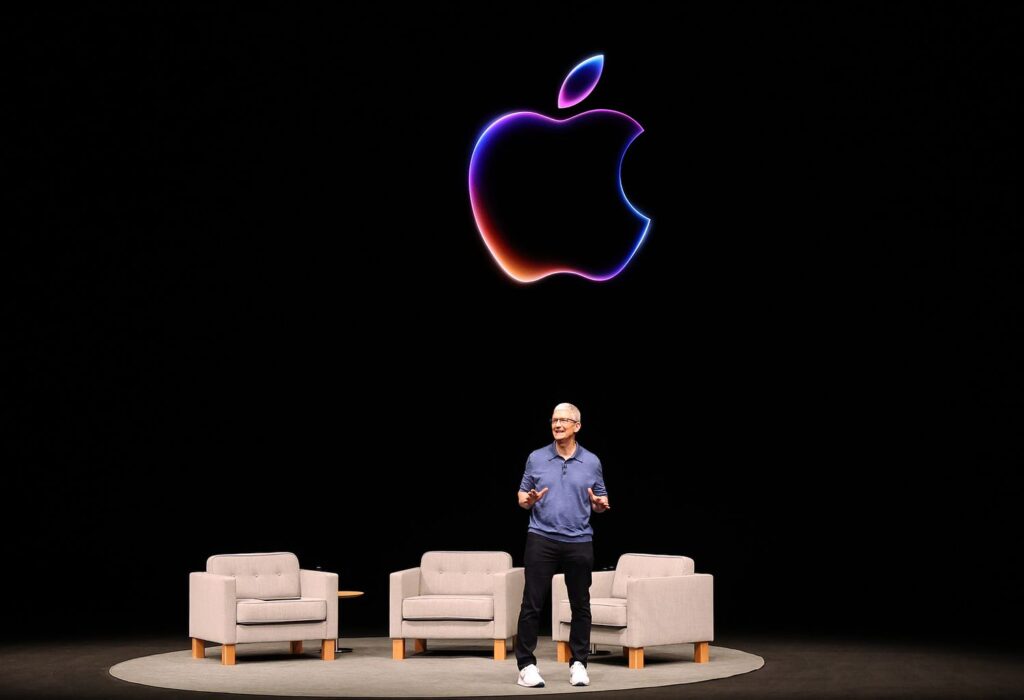The tech world’s attention often focuses on product launches and groundbreaking innovations. However, the inner workings of a company like Apple, particularly its governance and executive compensation, provide a fascinating glimpse into its strategic direction and priorities.
Apple recently announced that its 2025 annual shareholder meeting will be held virtually on Tuesday, February 25th, at 8:00 a.m. Pacific Time. This meeting, while not typically a stage for major product announcements, offers a platform for shareholders to exercise their rights and for the company to address key governance matters.
For those holding Apple stock as of January 2, 2025, the meeting provides an opportunity to participate in the company’s direction. Shareholders will be able to attend, cast their votes, and even submit questions through Apple’s dedicated virtual meeting website. Access will require a specific control number included in the Notice of Internet Availability of Proxy Materials distributed to shareholders. This virtual format has become increasingly common for large corporations, offering broader accessibility for shareholders worldwide.
The agenda for the meeting includes several key items. Shareholders will be asked to vote on the re-election of the Board of Directors, a crucial process that ensures the company is guided by experienced and capable leaders. The meeting will also include a vote to approve executive compensation, a topic that often draws significant attention. Additionally, shareholders will be asked to ratify Ernst & Young LLP as Apple’s independent public accounting firm, a standard practice for publicly traded companies. Finally, the meeting will also include votes on various shareholder proposals, which can range from social and environmental concerns to corporate governance reforms.
While Apple’s shareholder meetings are not typically known for revealing future product roadmaps or strategic overhauls, they can offer valuable insights. In past meetings, executives have occasionally touched upon broader industry trends and the company’s strategic thinking. For instance, last year’s meeting saw CEO Tim Cook discuss the growing importance of artificial intelligence, months before Apple unveiled its own AI-driven features. These brief glimpses into the company’s long-term vision are often of great interest to investors and industry observers.
One of the most closely watched aspects of the shareholder meeting is the disclosure of executive compensation. Apple’s annual proxy filing revealed that CEO Tim Cook earned $74.6 million in 2024. This figure represents an increase from his 2023 earnings of $63.2 million.
Cook’s compensation package is multifaceted, including a base salary of $3 million, a significant portion in stock awards totaling $58 million, performance-based awards amounting to $12 million, and other compensation totaling $1.5 million. This “other compensation” encompasses various benefits such as 401(k) contributions, life insurance premiums, vacation cash-out, security expenses, and the cost of personal air travel, which Cook is mandated by Apple to utilize for all travel, both business and personal.
It’s important to note that while Cook’s 2024 compensation exceeded his 2023 earnings, it was still lower than the substantial $99 million he received in 2022. This decrease followed a decision by Cook and the Board of Directors to adjust his total compensation after it approached the $100 million mark. This highlights a degree of self-regulation and consideration of shareholder sentiment regarding executive pay.
The structure of Cook’s compensation also reflects Apple’s emphasis on performance-based incentives. While a target compensation of $59 million was set, Cook earned more due to the cash incentive payout tied to Apple’s financial performance. This model aligns executive interests with those of shareholders, rewarding strong company performance.
Beyond the CEO’s compensation, the proxy filing also revealed the earnings of other key Apple executives. Luca Maestri (Chief Financial Officer), Kate Adams (Senior Vice President, General Counsel and Global Security), Deirdre O’Brien (Senior Vice President of Retail + People), and Jeff Williams (Chief Operating Officer) each earned $27.2 million. These figures provide a broader context for executive compensation within Apple, demonstrating a tiered structure that rewards leadership contributions across the organization.
In conclusion, Apple’s annual shareholder meeting is more than just a procedural event. It’s a key moment for corporate governance, allowing shareholders to participate in important decisions and providing transparency into executive compensation. While it might not be the venue for major product announcements, it offers a valuable look into the inner workings of one of the world’s most influential companies. The 2025 meeting will undoubtedly continue this tradition, offering insights into Apple’s priorities and its approach to leadership and accountability.
